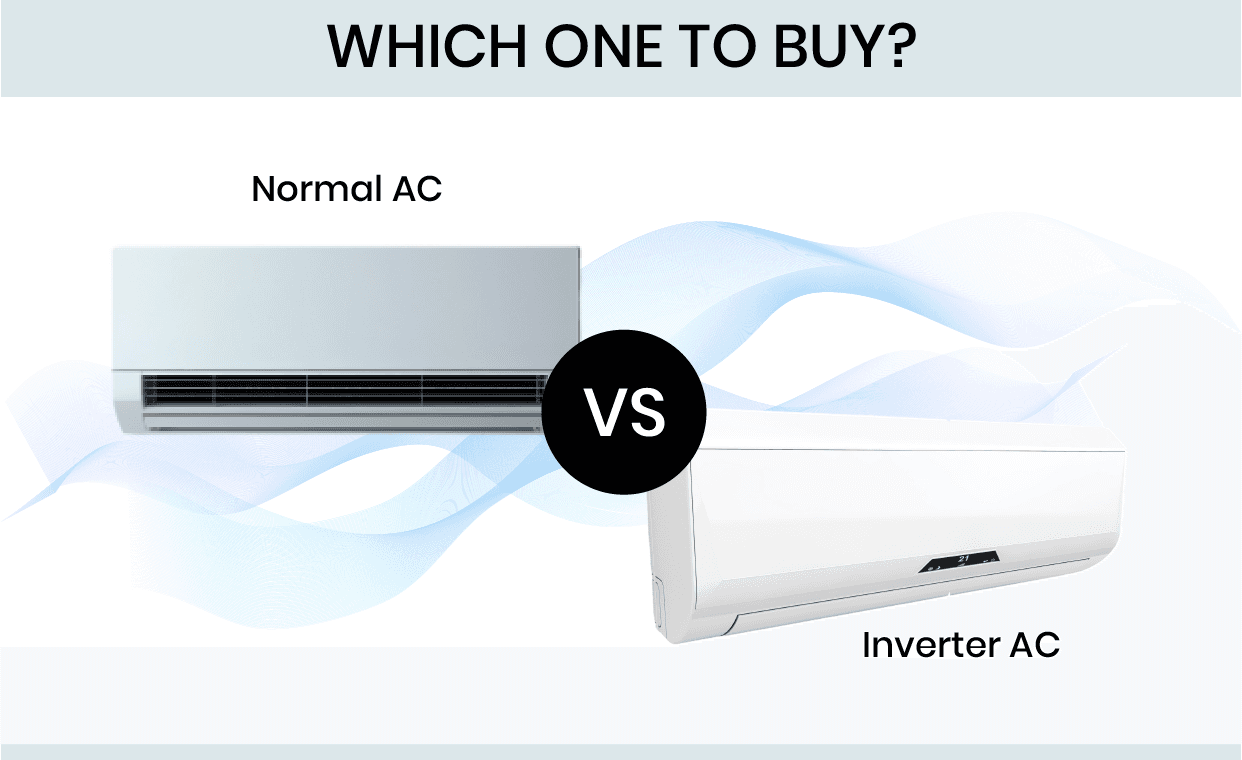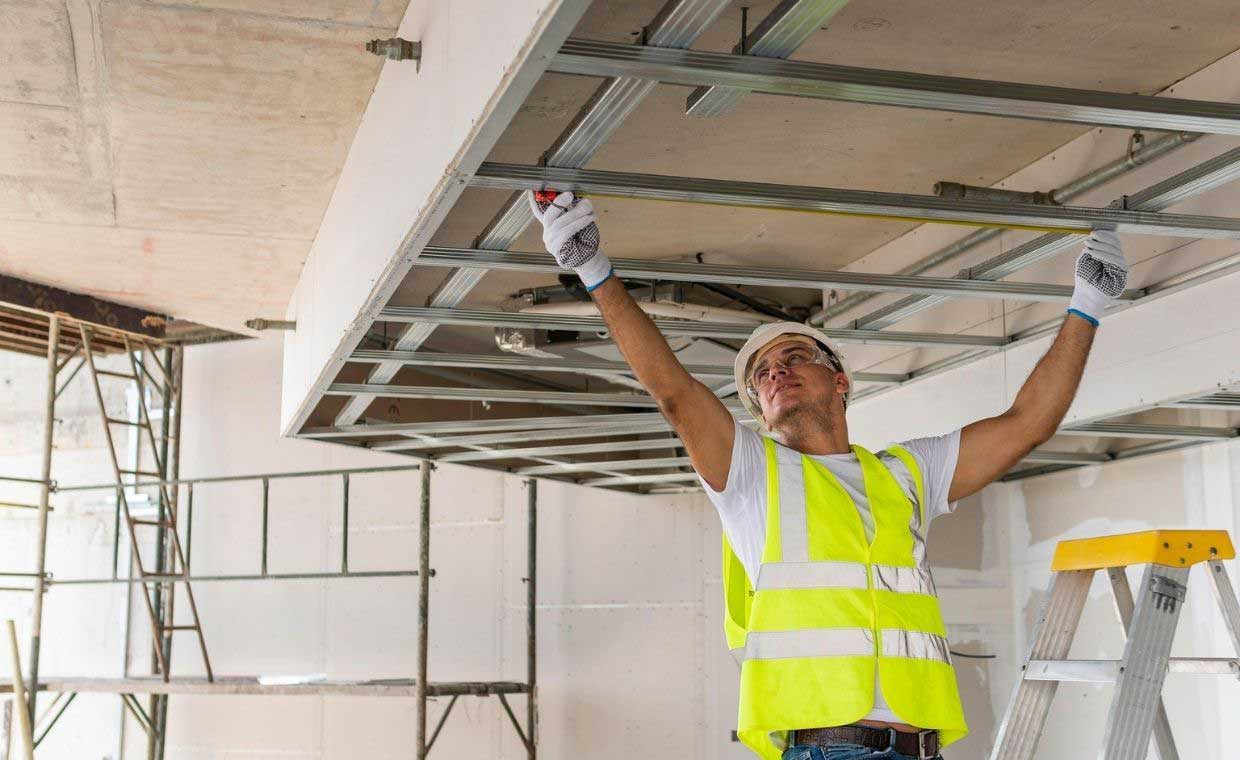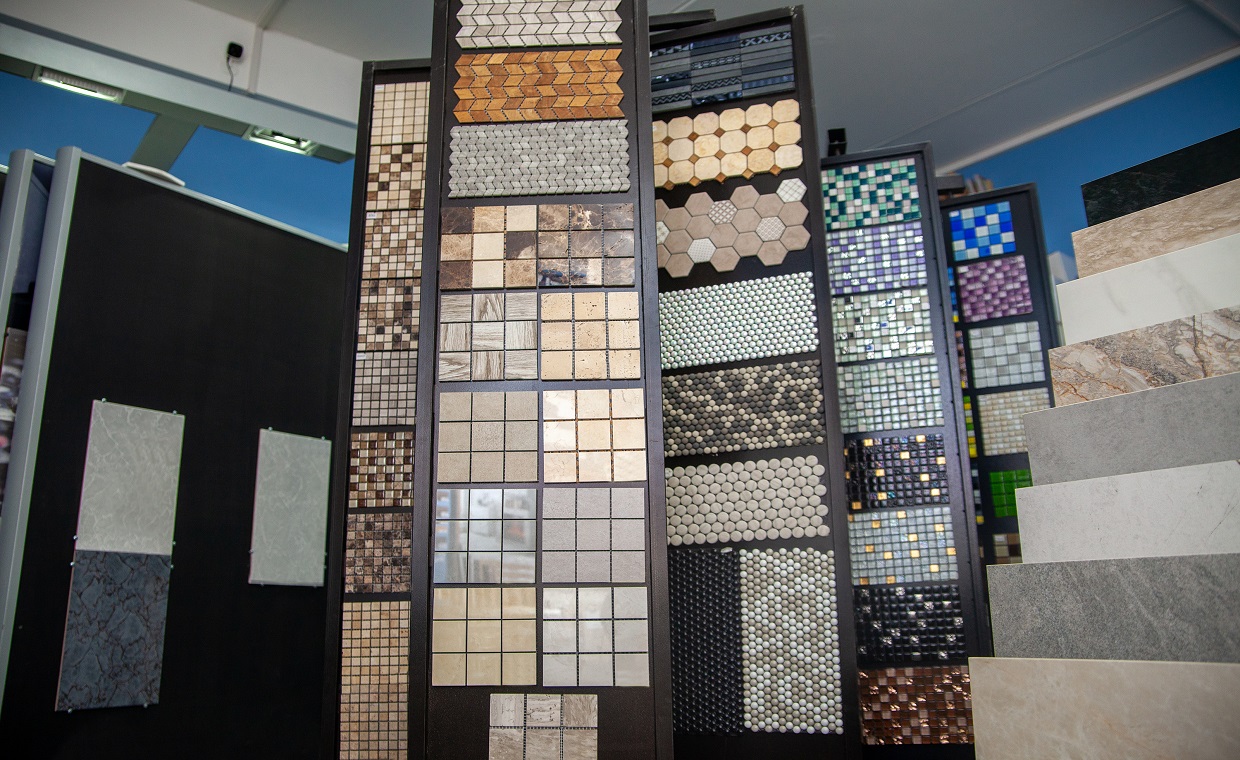
Table of Contents
Quick Summary
- This article explains what an inverter AC system is and how it works using variable-speed compressor technology.
- It compares inverter AC units with non-inverter air conditioners in terms of performance, noise and electricity consumption.
- Readers learn how inverter ACs maintain consistent temperature without frequently switching the compressor on and off.
- The blog highlights key advantages such as energy efficiency, quieter operation, faster cooling and solar compatibility.
- It also discusses disadvantages including higher initial cost and expensive internal components.
- The article concludes by encouraging environmentally responsible cooling choices through energy-efficient air conditioning.
For some, deciding between an inverter and a non-inverter air conditioner can be challenging. Inverter units are relatively new to the market, and they are believed to be more energy-efficient compared to traditional air conditioners. However, some individuals are sceptical of what is non-inverter AC and how this type of device improves energy efficiency. Here’s a quick guide to inverter air conditioners to help you decide which one is best for you.
So, if you’re in the market for an inverter air conditioner and want to examine the benefits and disadvantages before purchasing one, you’ve come to the perfect spot! In this blog, we’ll look at what is an inverter AC, how does it work, and the advantages and disadvantages of inverter air conditioner to help you make your final purchasing decision!
What is an Inverter AC?

What is an inverter AC? An inverter AC is a type of air conditioning device that is intended to be efficient, quiet, and simple to use. An inverter is an energy-saving technology that minimises unused activity in air conditioners by efficiently managing motor speed. Inverter air conditioners regulate room temperature by varying the speed at which their motors work without cycling on and off.
The compressor is the primary difference between an inverter AC and non-inverter AC. When you use a standard split AC, the compressor will regularly shut off. In contrast, the compressor in an inverter air conditioner is never turned off. It runs at a predetermined speed and includes an adjustable speed option.
For example, if you select a specified temperature in a standard split air conditioner, the AC compressor will turn off automatically once the cooling reaches the determined temperature. Again, as the room temperature rises, the compressor activates and cools the space. This function has numerous drawbacks, including the fact that the air conditioner will consume more electricity, make excessive noise, and provide inconsistent cooling in your space, among others.

However, in an inverter air conditioner, the compressor does not turn off even after reaching a set temperature. To avoid consuming power at every start of the motor, inverters have motors that do not shut off or on but vary the speed of the fans as per the requirement. In an inverter AC, the motor consumes more power initially to start and to achieve the thermostat temperature. On achieving the required temperature, the motor slows down but keeps working, maintaining the thermostat temperature. So instead of completely shutting off, the motor controls the rotating speed. Hence, power consumption is reduced as the motor works at a very slow speed. This technology in AC offers optimal comfort at the lowest possible cost. The power reduction is the main difference between an inverter AC and non-inverter AC.
Now, let’s look at the advantages of inverter AC and the disadvantages of inverter AC.
Pros/Advantages of Inverter AC System:
01. Consumes Less Power:
The motor running at low speed saves energy consumption. According to researchers Manjula Siriwardhana and D D Ananda Namal (2017), inverter technology can save roughly 35% of electricity consumed compared to a regular air conditioner. However, in an inverter air conditioner, the compressor only operates when the entire HVAC system is turned on. As a result, it consumes less electricity, allowing you to save money on your electricity bill.
02. Quiet AC Units:

As previously stated, in a window or split AC, the compressor cycles on and off regularly, resulting in noise from the HVAC system. An inverter air conditioner, on the other hand, operates quietly because the compressor does not turn on and off regularly. Instead, when the evaporator is cooler than the desired room temperature, the compressor slows down, while the interior fan is running. So, if you enjoy reading or want to sleep well, there is no substitute for an inverter air conditioner.
03. Cools Room Faster and Efficiently:

With an inverter air conditioner, you’ll get even cooling throughout the room. The compressor runs not simply at a variable speed but also at a significantly higher pace than conventional air conditioners, which have a fixed speed. As a result, it quickly cools down a room.
Even in hot weather conditions, where conventional units have difficulty keeping up with demand or simply become non-functional due to overheating issues, inverter AC will still operate efficiently during the summer months.
Check out these tips to maintain your AC for its efficient operation:
Stay Cool This Summer With 5 Must-Know AC Maintenance Tips
04. Compactible with Solar Panel:

Many split or window air conditioners do not run on solar electricity. That is why many homeowners who use solar power in their homes have difficulty installing an air conditioner. However, with an inverter air conditioner, you will no longer have to worry because it functions smoothly on solar energy. To power air conditioners using solar energy, an inverter is necessary to convert the DC current from the solar panels to AC current. Inverter AC uses the energy stored in a battery after passing it through the built-in inverter.
05. Safe on Household Wiring:
The inverter ACs do not overload, making them safe for the rest of the household wiring. In contrast to non-inverter ACs, there are no voltage variations when the compressor is turned on and off. This is due to the compressor in an inverter AC starting gradually and running constantly at a low speed, ensuring a consistent voltage.
06. Has Lower Carbon Footprint:
Inverter air conditioners use more efficient and green refrigerants, such as R32, which have a lesser carbon footprint on the environment while also providing superior cooling capacity.
Cons/Disadvantages of Inverter AC System:
01. Expensive Compared to Non-Inverter AC:

Another major difference between inverter AC and non-inverter AC is cost. Despite having a longer life expectancy and reduced operating costs, inverter air conditioners are substantially more expensive to purchase due to the more complex design of their advanced compressor.
02. Costly Internal Parts:
Since the AC maintains the temperature by controlling the speed of the motor, it consists of more movable parts within the AC unit. These parts are costly and often not easily available.
Takeaway:
Due to the numerous benefits of an inverter AC system, it is proving to be a money-saver by recovering the extra money spent initially on the AC. If each house and office uses inverter AC units, imagine the electricity we can save every day for our city and for the nation! It can save precious, non-renewable fossil fuels for our future generations! Hence, “go green” and use the inverter AC for the sake of Mother Earth and save thousands of hectares from deforestation! Share your opinion in the comment section.
Know the common AC problems, and how to get rid of them:
Stay Cool This Summer With 5 Must-Know AC Maintenance Tips
FAQs – Inverter AC System
01. What is an inverter AC?
An inverter AC is an air conditioner that uses a variable-speed compressor to maintain room temperature efficiently without repeatedly switching on and off.
02. What is the difference between inverter AC and non-inverter AC?
An inverter AC adjusts compressor speed continuously, while a non-inverter AC compressor turns on and off to maintain temperature.
03. What are the advantages of inverter AC systems?
They consume less electricity, operate quietly, provide faster cooling and maintain a stable room temperature.
04. What are the disadvantages of inverter AC systems?
They have a higher purchase cost and their internal components can be more expensive to repair or replace.
05. Is an inverter AC suitable for long-term use?
Yes. Although the initial cost is higher, inverter ACs are generally more energy efficient and economical over time.
References
Siriwardhana, M. and Namal, D.A., (2017). Comparison of Energy Consumption between a Standard Air Conditioner and an Inverter-type Air Conditioner Operating in an Office Building. [Online] SLEMA Journal, 20(1-2). Available from: https://deliverypdf.ssrn.com/delivery.php?ID=612085086071107080123029102005020078006040020061071033076094086097072088066069084109101003043040006010034085025002119064065089061087094034004093097065093001120021064024049055125070024076087029011027121027102092116074110082010101067099076012094067024017&EXT=pdf&INDEX=TRUE
Author & Expert Review
Written By:  Gaurav Mishra | Civil Engineer & Content Writer
Gaurav Mishra | Civil Engineer & Content Writer
| Credentials: B.E. (Mahavir Swami College, Surat), Registered with Bhagwan Mahavir University (BMU). Experience: Civil Engineer with 5+ years of content writing experience, currently writing impactful articles for Gharpedia, part of SDCPL. Expertise: Specializes in writing well-researched content on residential construction, construction materials, design planning, on-site practices, and safety, blending technical accuracy with everyday clarity. Find him on: LinkedIn |
Verified By Expert:  Farhan Shaikh – Senior Manager – Architect, SDCPL | Associate Member – IIA
Farhan Shaikh – Senior Manager – Architect, SDCPL | Associate Member – IIA
This article has been reviewed for architectural and interior design accuracy by Farhan Shaikh, Senior Manager – Architect at Sthapati Designers & Consultants Pvt. Ltd. As the lead for all architectural and interior projects at SDCPL and an Associate Member of the Indian Institute of Architects (IIA), he brings hands-on experience in architectural planning, interior design, project coordination, and sustainable strategies. His review ensures the content reflects practical design considerations, industry best practices, and real-world applicability across both architecture and interior spaces.
Find him on : Linkedin






























